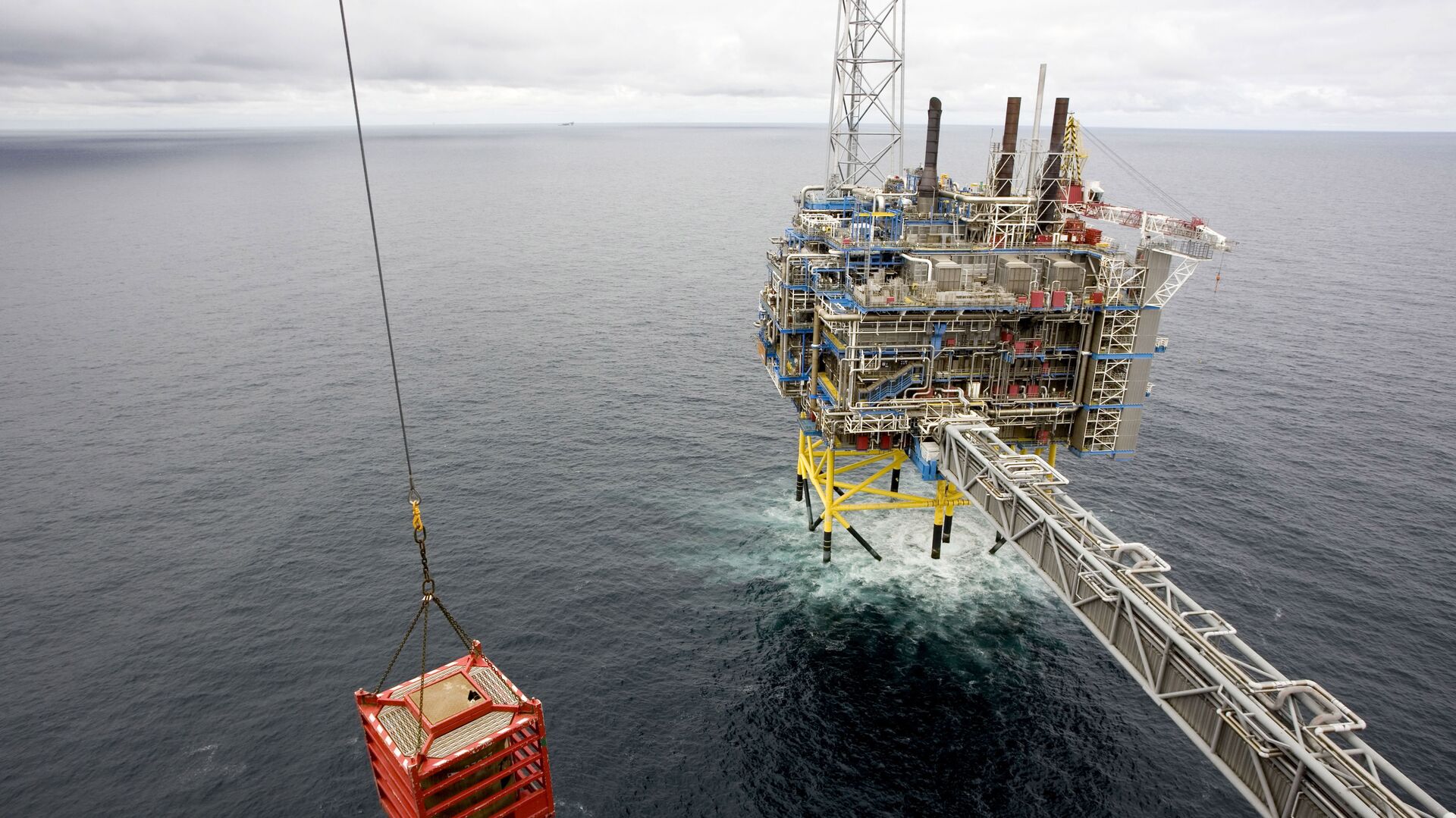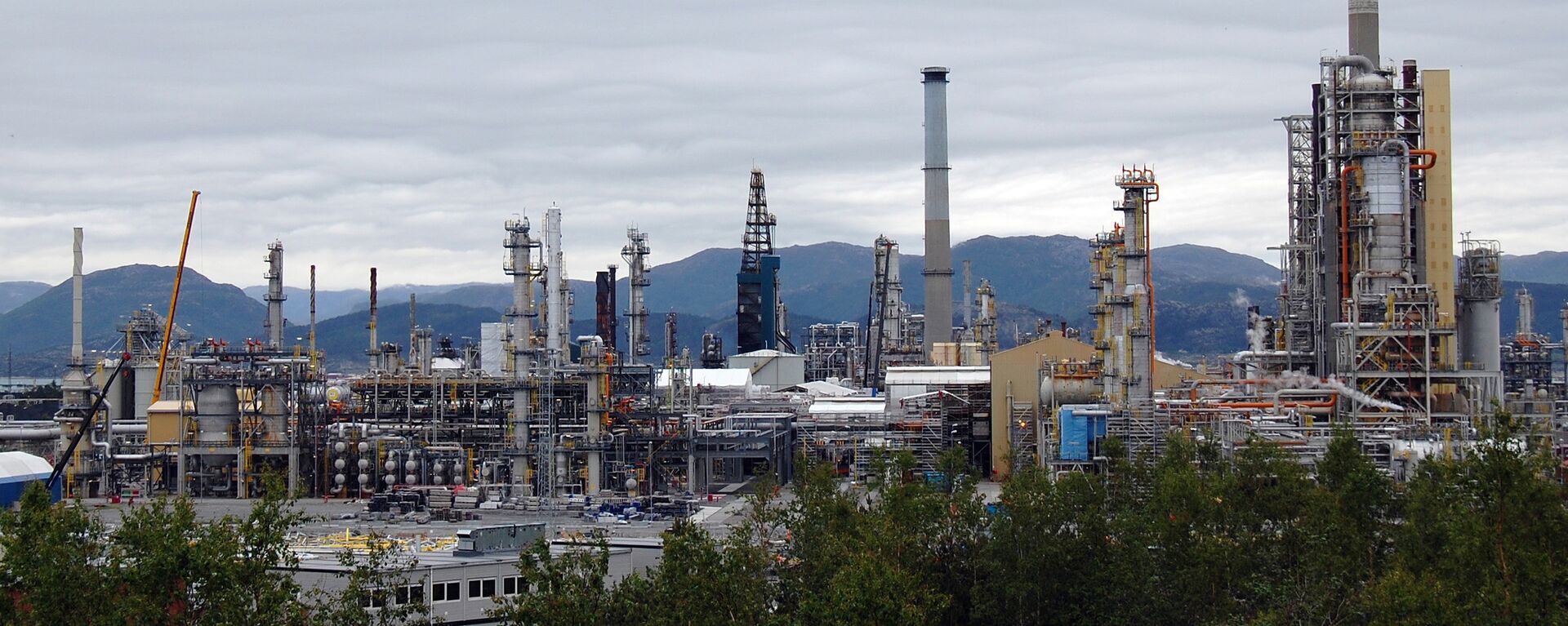https://sputnikglobe.com/20220705/norwegian-oil-and-gas-workers-strike-may-further-imperil-europes-energy-supplies-1096959681.html
Norwegian Oil and Gas Workers' Strike May Further Imperil Europe's Energy Supplies
Norwegian Oil and Gas Workers' Strike May Further Imperil Europe's Energy Supplies
Sputnik International
As energy shipments from Russia have dropped to multiyear lows due to sanctions, some nations' unwillingness to pay up in rubles and the EU's overall desire to... 05.07.2022, Sputnik International
2022-07-05T06:35+0000
2022-07-05T06:35+0000
2022-08-06T08:33+0000
europe
newsfeed
scandinavia
norway
oil and gas
energy crisis in europe
https://cdn1.img.sputnikglobe.com/img/102113/80/1021138084_0:0:4191:2357_1920x0_80_0_0_d2aaea98fc33f5d14c39f1f28616f3c9.jpg
Norwegian oil and gas workers at state giant Equinor have gone on a strike following demands for wage increases to compensate for the rising inflation, which reached 5.7 percent earlier in May, a level unseen in decades.“The strike has begun, trade union leader Audun Ingvartsen declared, after a majority of the members voted no to a solution proposed by Norwegian Oil and Gas.So far, 74 personnel stopped their work on the platforms Gudrun, Oserbeg Aust and Sør, which will have to shut down. The conflict will escalate on Wednesday when 117 union members of Aasta Hansteen, Heidrun and Kristin will join the strike, prompting the platforms to close production as well.If no solution is reached between the parties, the strike will also hit the platforms Gullfaks A, Gullfaks C and Sleipner from 9 July, which are manned by nearly 400 staff. The strike will wipe out about 13 percent of the total Norwegian gas production, whereas oil production will decrease by nearly 7 percent.The Norwegian government has said in a statement that they are closely following the conflict. It has the power to stop the strike under exceptional circumstances.The strike has begun at a time when oil and gas prices are high and natural gas supplies in Europe are already tight due to a decline in Russia's exports triggered by massive EU sanctions on the one hand and Moscow's demand for payment in rubles on the other hand, which several European nations chose to ignore. On top of that, Russian state-run Gazprom slashed shipments through its biggest Nord Stream pipeline by 60 percent, citing disrupted maintenance of crucial equipment due to international sanctions.As Russia’s shipments have dropped to multiyear lows, Norway’s exports are becoming increasingly important for Europe. In 2021, Norway supplied a quarter of gas demand in the EU and the UK and some 8 percent of its oil demand. Recently, Oslo claimed it could replace more Russian gas if Europe commits to buying. Therefore, if the strike goes on, it may further jeopardize Europe's energy supply.
https://sputnikglobe.com/20220523/ukraine-crisis-polish-prime-ministers-claim-oslo-should-share-oil-revenues-causes-stir-in-norway-1095709317.html
scandinavia
norway
Sputnik International
feedback@sputniknews.com
+74956456601
MIA „Rosiya Segodnya“
2022
News
en_EN
Sputnik International
feedback@sputniknews.com
+74956456601
MIA „Rosiya Segodnya“
Sputnik International
feedback@sputniknews.com
+74956456601
MIA „Rosiya Segodnya“
europe, newsfeed, scandinavia, norway, oil and gas
europe, newsfeed, scandinavia, norway, oil and gas
Norwegian Oil and Gas Workers' Strike May Further Imperil Europe's Energy Supplies
06:35 GMT 05.07.2022 (Updated: 08:33 GMT 06.08.2022) As energy shipments from Russia have dropped to multiyear lows due to sanctions, some nations' unwillingness to pay up in rubles and the EU's overall desire to divest from Russian energy, Norway’s supplies are becoming increasingly important for Europe in times of troubles.
Norwegian oil and gas workers at state giant Equinor have gone on a strike following demands for wage increases to compensate for the rising inflation, which reached 5.7 percent earlier in May, a level unseen in decades.
“The strike has begun, trade union leader Audun Ingvartsen declared, after a majority of the members voted no to a solution proposed by Norwegian Oil and Gas.
So far, 74 personnel stopped their work on the platforms Gudrun, Oserbeg Aust and Sør, which will have to shut down. The conflict will escalate on Wednesday when 117 union members of Aasta Hansteen, Heidrun and Kristin will join the strike, prompting the platforms to close production as well.
If no solution is reached between the parties, the strike will also hit the platforms Gullfaks A, Gullfaks C and Sleipner from 9 July, which are manned by nearly 400 staff.
“This is a comprehensive strike, Elisabeth Brattebø Fenne, head of organization and working life in Norwegian oil and gas,
told national broadcaster NRK.
The strike will wipe out about 13 percent of the total Norwegian gas production, whereas oil production will decrease by nearly 7 percent.
The Norwegian government has said in a statement that they are closely following the conflict. It has the power to stop the strike under exceptional circumstances.
The strike has begun at a time when oil and gas prices are high and natural gas supplies in Europe are already tight due to a decline in Russia's exports triggered by massive EU sanctions on the one hand and Moscow's demand for payment in rubles on the other hand, which several European nations chose to ignore. On top of that, Russian state-run Gazprom slashed shipments through its biggest Nord Stream pipeline by 60 percent, citing disrupted maintenance of crucial equipment due to international sanctions.
As Russia’s shipments have dropped to multiyear lows, Norway’s exports are becoming increasingly important for Europe. In 2021, Norway supplied a quarter of gas demand in the EU and the UK and some 8 percent of its oil demand. Recently, Oslo claimed it could replace more Russian gas if Europe commits to buying. Therefore, if the strike goes on, it may further jeopardize Europe's energy supply.





